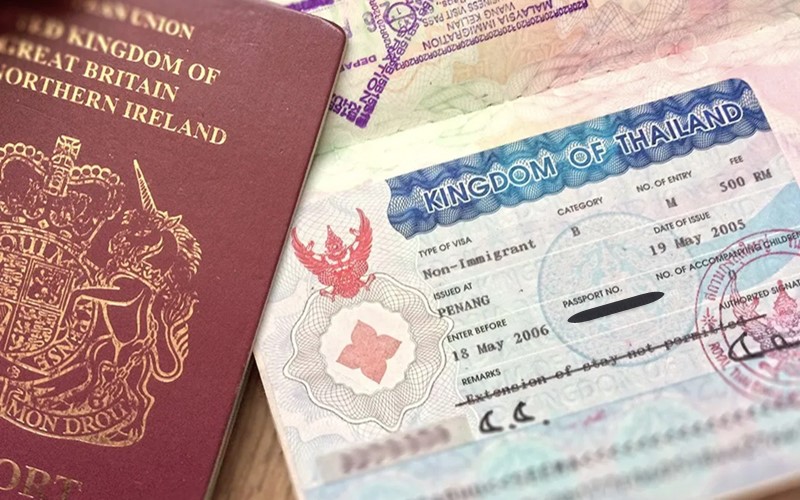Labor Disputes in Thailand
Labor disputes are an inevitable part of employment relationships, particularly in a dynamic and developing economy like Thailand. As the country continues to grow across sectors such as manufacturing, tourism, services, and technology, conflicts between employers and employees can arise over wages, working conditions, termination, benefits, and workplace rights. Labor disputes in Thailand are governed primarily by the Labor Protection Act, the Labor Relations Act, and related regulations, which aim to balance the interests of employers and employees while maintaining social and economic stability. Understanding labor disputes in Thailand is essential for both employers and workers to protect their rights and resolve conflicts effectively.
Legal Framework Governing Labor Disputes
Thailand has a well-established legal framework for labor relations. The Labor Protection Act sets minimum standards for employment conditions, including wages, working hours, overtime, leave, severance pay, and termination procedures. The Labor Relations Act focuses on collective labor relations, trade unions, collective bargaining, and dispute resolution mechanisms.
Labor disputes may arise when one party believes the other has violated these laws or failed to comply with contractual obligations. The Thai legal system provides various channels for resolving labor disputes, including negotiation, mediation, labor inspectors, labor courts, and, in some cases, strikes or lockouts under regulated conditions.
Common Causes of Labor Disputes in Thailand
Labor disputes in Thailand can occur for many reasons, often related to disagreements over employment terms or perceived unfair treatment. Common causes include:
-
Unpaid or underpaid wages and overtime
-
Disputes over severance pay or termination benefits
-
Unlawful or unfair dismissal
-
Disagreements over working hours and rest days
-
Failure to provide statutory benefits, such as leave or social security
-
Workplace discrimination or harassment
-
Breach of employment contracts or work rules
These disputes may involve individual employees or groups of employees, depending on the nature of the issue.
Individual Labor Disputes
Individual labor disputes in Thailand typically involve conflicts between a single employee and an employer. These disputes often relate to termination, unpaid wages, severance pay, or breach of contract.
Employees who believe their rights have been violated may file a complaint with the Department of Labor Protection and Welfare or bring a claim before the Labor Court. The Labor Court system is designed to provide a faster and more accessible process than ordinary civil courts, with judges experienced in labor law.
Individual labor disputes are common and can often be resolved through mediation or conciliation before proceeding to formal litigation.
Collective Labor Disputes
Collective labor disputes involve conflicts between employers and groups of employees, usually represented by labor unions or employee committees. These disputes often concern collective bargaining agreements, wage adjustments, working conditions, or changes in employment policies.
Under Thai law, collective labor disputes follow specific procedures, including negotiation and mediation by labor officials. If negotiations fail, the dispute may escalate to strikes or lockouts, provided legal requirements are strictly followed.
Collective labor disputes can have a significant impact on business operations and public interest, making proper legal handling essential.
Role of Labor Inspectors and Mediation
Labor inspectors play a crucial role in resolving labor disputes in Thailand. Employees may file complaints with labor inspectors, who have the authority to investigate alleged violations and order employers to comply with labor laws.
Mediation is a key feature of the Thai labor dispute resolution system. Both individual and collective disputes often undergo mediation before reaching the Labor Court. Mediation helps parties reach mutually acceptable solutions without lengthy litigation, saving time and costs.
The emphasis on mediation reflects Thailand’s preference for amicable dispute resolution and workplace harmony.
Labor Court Proceedings
When labor disputes cannot be resolved through negotiation or mediation, they may be brought before the Labor Court. Thailand has specialized Labor Courts with jurisdiction over employment-related disputes.
Labor Court proceedings are generally faster and more informal than ordinary civil court cases. The court may order remedies such as payment of wages, reinstatement of employment, severance pay, or compensation for unfair dismissal.
The Labor Court’s decisions are legally binding and enforceable, providing a clear resolution to labor disputes.
Termination and Unfair Dismissal Disputes
Termination of employment is one of the most common sources of labor disputes in Thailand. Employers must follow strict legal procedures when terminating employees, including providing notice or payment in lieu of notice and severance pay, unless termination is for serious misconduct as defined by law.
Unfair dismissal claims arise when employees believe they were terminated without valid legal grounds or without proper procedures. The Labor Court has broad discretion to award compensation or order reinstatement in cases of unfair termination.
Proper handling of termination is critical to avoiding labor disputes and legal liability.
Labor Disputes Involving Foreign Employees
With many foreign workers employed in Thailand, labor disputes involving foreign employees are increasingly common. While foreign employees are generally protected under Thai labor laws, immigration and work permit issues can complicate disputes.
Foreign employees may face additional challenges, such as visa cancellations following termination. Proper legal guidance is essential to ensure that labor rights are protected while complying with immigration regulations.
Employers must also ensure that employment terms for foreign employees comply with Thai labor standards.
Impact of Labor Disputes on Businesses and Employees
Labor disputes can have significant consequences for both employers and employees. For employees, unresolved disputes may result in loss of income, job insecurity, and emotional stress. For employers, disputes can disrupt operations, damage reputation, and lead to financial losses.
Effective dispute resolution helps:
-
Maintain workplace stability
-
Protect employee morale
-
Reduce legal and operational risks
-
Promote fair and lawful employment practices
Addressing disputes promptly and fairly benefits all parties involved.
Preventing Labor Disputes
Prevention is often the most effective approach to managing labor disputes in Thailand. Employers can reduce the risk of disputes by:
-
Complying strictly with labor laws
-
Maintaining clear employment contracts and work rules
-
Communicating openly with employees
-
Providing fair and consistent treatment
-
Addressing grievances early
Employees also benefit from understanding their rights and obligations under Thai law.
Importance of Legal Advice in Labor Disputes
Labor disputes in Thailand involve complex legal and procedural issues. Legal advice is valuable for both employers and employees to ensure proper handling of disputes, compliance with legal requirements, and protection of rights.
Lawyers can assist with negotiation, mediation, court proceedings, and settlement agreements, helping parties achieve fair and efficient resolutions.
Conclusion
Labor disputes in Thailand are an important aspect of employment law and workplace relations. Whether involving individual grievances or collective bargaining conflicts, these disputes require careful handling within the framework of Thai labor laws. Understanding the causes, procedures, and resolution mechanisms for labor disputes helps employers and employees protect their rights, reduce conflict, and promote fair and stable working relationships. By emphasizing compliance, communication, and lawful dispute resolution, labor disputes can be managed effectively, contributing to a more balanced and productive labor environment in Thailand.











